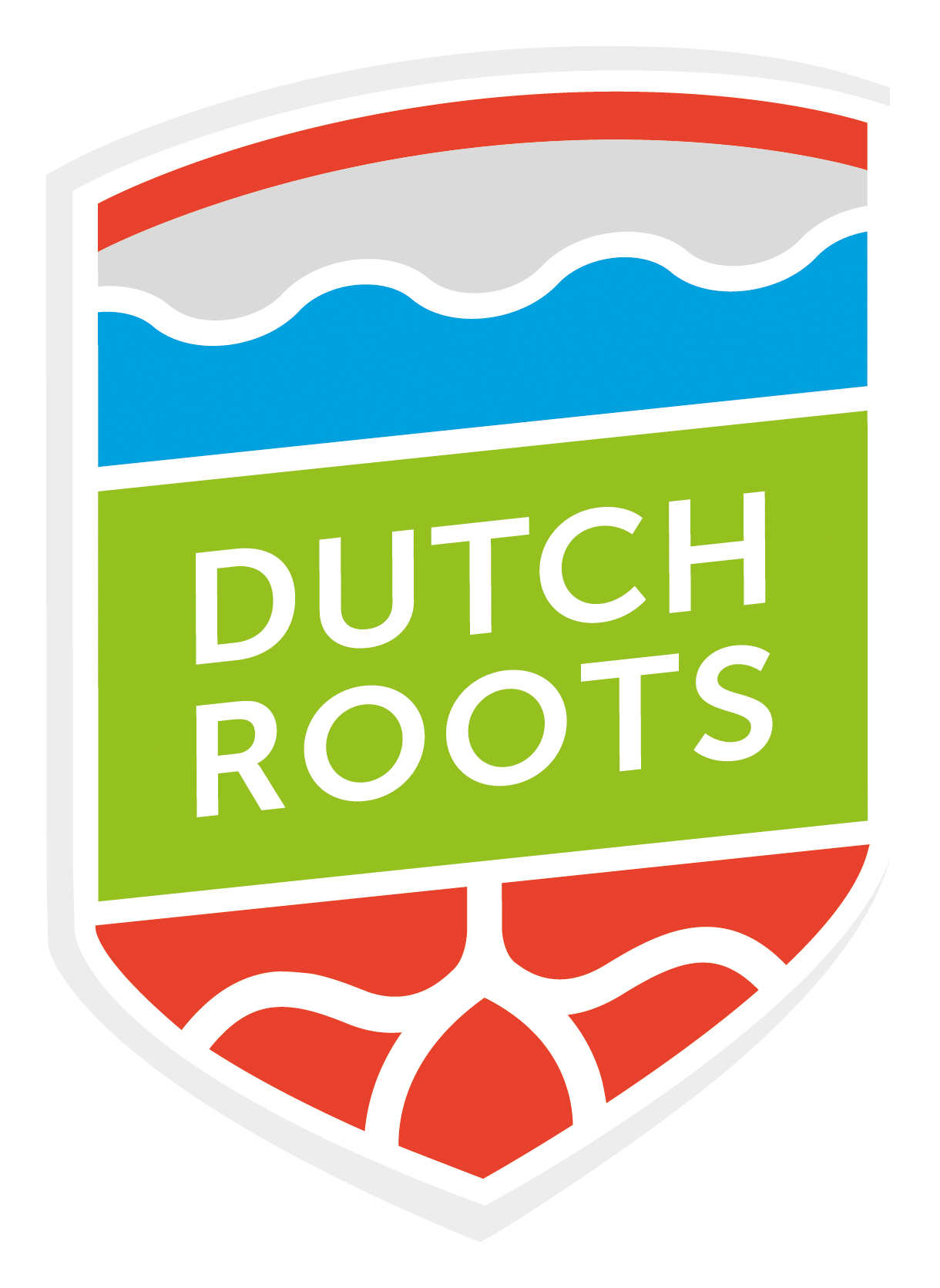Smart and Silt Farming
Friday 13 July – Southern tour
This arable crop tour brought us to people who think a step further than others. ‘Smart farming’ is what applies to all of them. Potato grower Jacob van den Borne is a pioneer when it comes to precision farming. A true data farmer. Hubrecht Janse farms close to the sea and has to deal with salination of his soils. He turned the problem into a possibility and started growing samphire. We also visited the brand new Innovation Center of the Dutch beet industry, where researchers try to get more out of a sugar beet than just sugar.
Zeeuws Zilt, Hubrecht Janse
The arable farm of Hubrecht Janse is situated in Wolphaartsdijk in the province of Zeeland. The family business has three different branches:
- Recreation
- Agriculture
- Aquaculture with focus on silt crops.
The recreation branch is a middle-sized farm camping site called ‘Heerlijkheid van Wolphaartsdijk’. It is a landscape camping along the coastline of the lake ‘Veerse Meer’ and very attractive for people who like to fish or sail a boat.
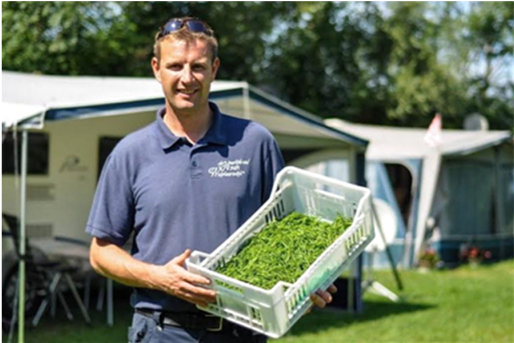
Salinization
On the traditional 65 ha arable farm Janse grows potatoes, wheat, sugar beets and grass for seed production. Because of the salinization of The Veerse Meer and the rising groundwater table, Janse has to deal with a silted soil on about 15 hectares of his farm. To be able to continue succesfully growing crops on this silted plot the farmer is testing a lot of different plants on their sensitivity for high levels of salt.
Most successful so far is the crop samphire. Janse grows samphire as a vegetable for fresh consumption as well seed production. Samphire is an annual crop that is known as one of the most silt tolerant plants in the world. The harvest of the fresh samphire takes place in the summer period from June till September. The vegetable can be consumed raw, in salads or stir-fried.
Silted clay
According to Janse growing a crop is not the biggest challenge of salinization. He tells that he has more problems with the structure of the silted clay because compaction resulting in a shortage of oxygen. The farmer therefor tests different ways of cultivating the soil, growing cover crops and using for instance gypsum.
Facts & Figures
Land: 65 ha arable land
Crops: potatoes, sugar beet, wheat, grass for seed production, samphire
Soil: silted clay soils
Cosun Innovation Center
Cosun is a big agricultural mother-cooperation firmly rooted in the primary sector. The businesses that belong to Cosun are Aviko Potato, Duynie, Sensus, Suiker Unie, SVZ and Cosun Biobased Products. They produce food ingredients and products that make their way to the food industry, foodservice sector and retail channels. In addition, the group is increasingly focusing on components for non-food applications.
Cosun’s ambition is to get the most out of its raw materials: this is good for the environment, profitability and meets society’s demand for responsible products and production methods. The Cosun businesses also supply products to the animal feed sector and residual products are used to produce biogas.
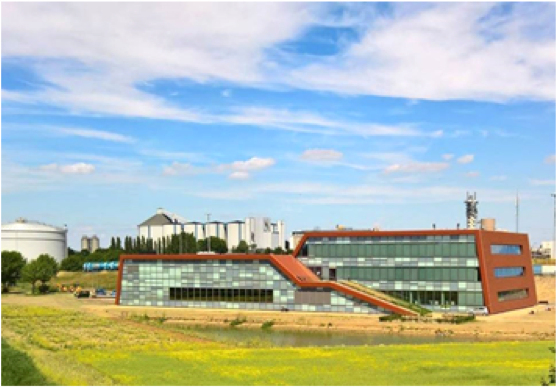
Members/shareholders
Royal Cosun was established nearly 120 years ago by Dutch sugar beet growers who united themselves in a cooperative. Today, the cooperative has some 8,800 member/shareholders and has grown into a business with 3,900 employees [in FTE] and a group turnover of about €2 billion annually
Last year Cosun opened a whole new R&D-centre close to the sugar factory of Suiker Unie in Dinteloord. This Cosun Innovation Centre provides all the necessary and state of the art facilities for research and development.
Cosun Innovation Centre offers workstations for over one hundred R&D professionals. It houses the activities of Cosun Research & Development, Cosun New Business & Innovation, Cosun Biobased Products and the IRS (knowledge institute for optimisation of beet cultivation in the Netherlands). IRS uses its own BeetLab located across the main building.
Various laboratories
The innovation center has various laboratories (analysis, product development, microbiology and non-food), a fully equipped room for sensory research, twelve meeting rooms and an in-house pilot plant. This plant enables production at a scale that exceeds the possibilities of a laboratory environment but is smaller than a real factory.
Van den Borne Aardappelen
Jacob van den Borne and his brother Jan run a big arable operation in the middle of the province of Brabant, close to the border between the Netherlands and Belgium. The farm is specialized in growing potatoes for the production of French fries. On mainly sandy soils the Van den Borne brothers cultivate about 450 ha, divided over about 140 fields with an average size of 3 hectares. Here the first step of precision farming proves to be very helpful: GPS helps to prevent overlap of fertilizer and sprays on the irregular shaped fields.
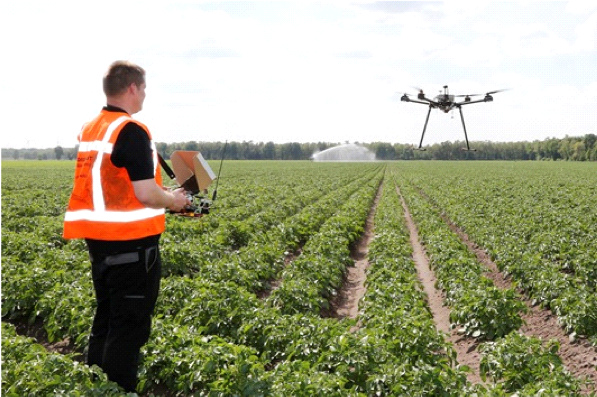
Monitoring growth
In the Netherlands Van den Borne is known as an absolute precursor for precision/data farming. He is involved in a number of projects which concerns the gathering of data and translating this input into area specific applications. Van den Borne scans the soil of all his field and tests different kinds of sensors for monitoring the growth of his crops. Last year he also started with precision storage of his potatoes.
In recent years the Van den Borne farm has transformed into a breeding ground for innovation. All kinds of different applications that can contribute to precision and smart farming are tested on site.
More efficiency
They respond to variability in many ways: for example all fields are mapped for differences in the soil, like texture, pH and organic matter. Also the water situation is continuously monitored to be able to give the potato crop the right amount of water at the right time. The advantages of all their work are more efficiency, less environmental impact, saving costs and higher yields.
Facts & Figures:
Land: 450 ha
Crops: potatoes, sugar beet, corn
Soil: sandy soils
Irrigation: on 50% of plots
Facts and figures about Dutch arable farming
Where is the cropland?
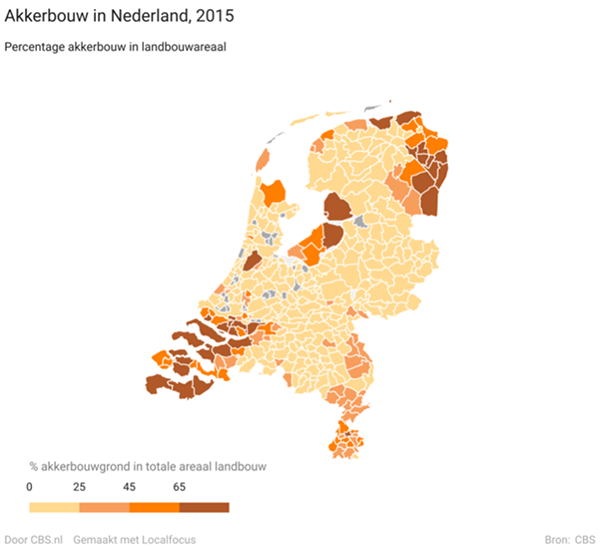
(The figure is showing arable land as a percentage of total farm land)
Dutch arable sector in a nutshell:
- Holland has 12,000 arable farmers (definition: more than 2/3 of the turnover comes from arable farming), of which 9,000 are pure arable,
- A quarter of the agricultural land in the Netherlands is in use as arable land: about 500,000 ha. The average size of an arable farm is 42 ha,
- 8% of the arable farms is bigger than 100 ha. They account for 37% of the acreage,
- More than 30% of the arable land is used for potatoes,
- The average price of farm land in the Netherlands is 56,500 euro per hectare. (In Flevoland, where the two farms of this tour are located, prices are 80,000 up to 120,000 euro per ha),
- The Dutch farming sector exports 2/3 of its production,
- Holland is the biggest exporter of seed potatoes, onions and flower bulbs in the world.

